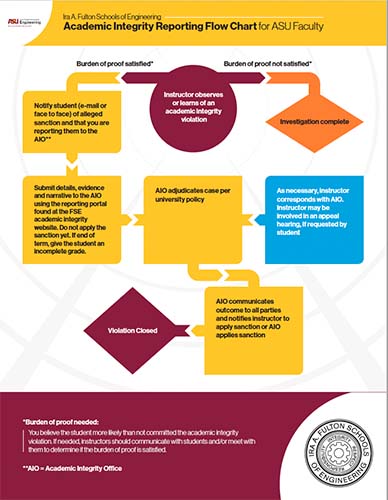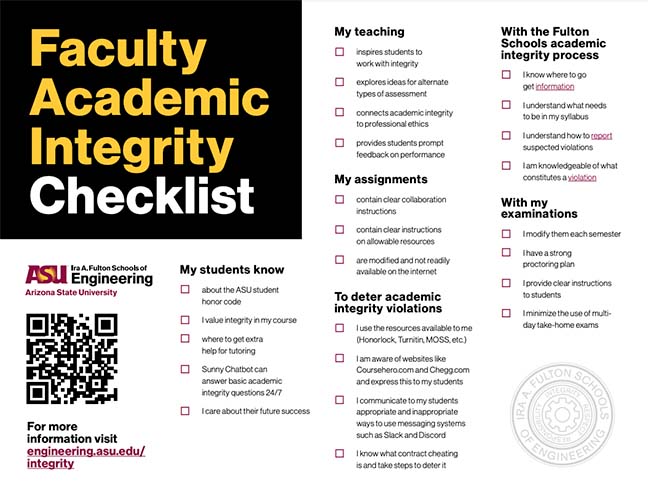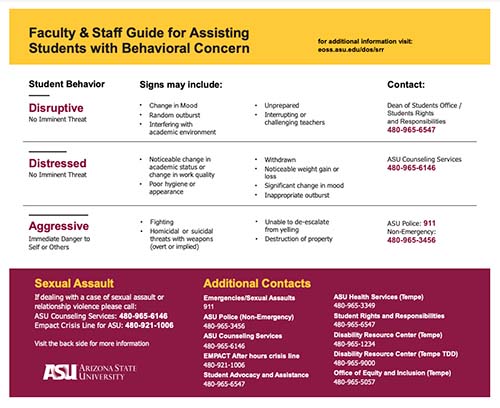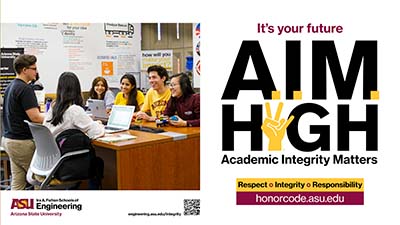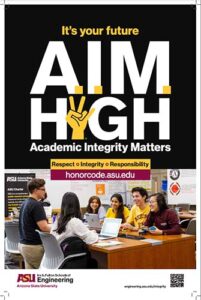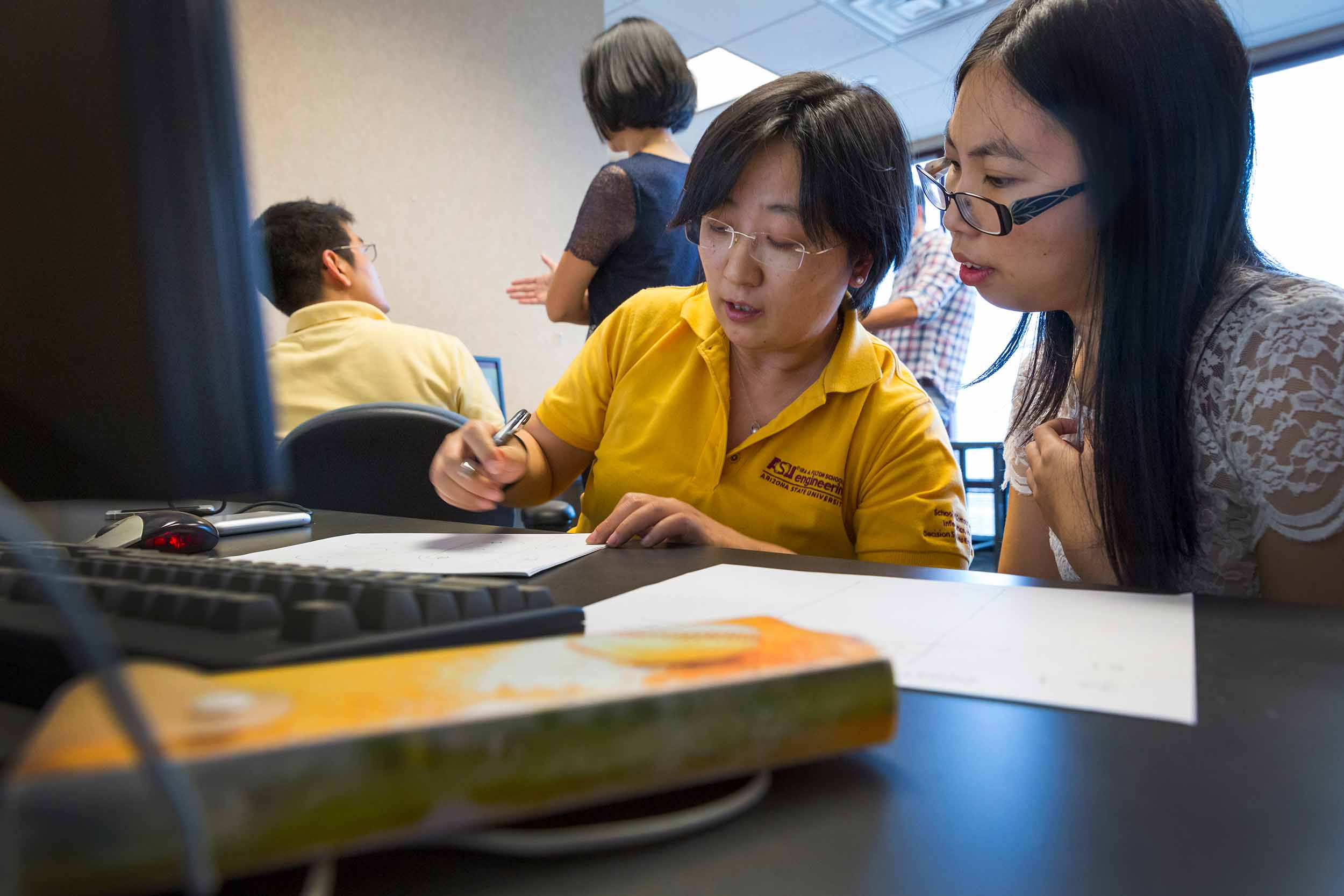
Academic integrity for faculty
Discover best practices, tips for the classroom, and information on how to report an academic integrity violation

Both your professional reputation and the reputation of ASU can only be maintained by upholding the highest academic integrity standards in your classrooms and labs.
The following information will guide you in reporting an academic integrity violation, provide resources and answer frequently asked questions.
Reporting a violation of academic integrity
A specific set of steps is recommended for reporting a violation of academic integrity. If you are considering reporting a violation, please follow these steps. You may also download the Academic Integrity Reporting Flow Chart for a broader picture of what to expect in the reporting process.
- Instructor observes or learns of an academic integrity violation.
- Instructor communicates to the the student the assignment and description of the alleged violation.
- Acceptable correspondence with students can be done using e-mail, in-person, on the phone, Zoom or other similar platforms.
- You should also inform the student that withdrawing from the class will not absolve them of responsibility for this alleged violation.
- Instructors should make a good faith effort to answer their questions related to the charge.
- The burden of proof needed is: “is it more likely than not, that the student committed the academic integrity violation.”
- If after getting student feedback you decide that no violation occurred, you may stop here and no reporting is required.
- If it has not already occurred, notify the student (email, face-to-face, Zoom, telephone) that you are reporting them to the Academic Integrity Office.
- Submit your details, evidence and narrative to the Academic Integrity Office using the reporting portal found on the academic integrity homepage. Report all violations as soon as your communications with the student(s) is/are complete. Please do not hold violations until the end of the semester.
- The Academic Integrity Office will adjudicate the case per FSE and University policy/procedures.*
- Note: the “typical” 1st offense violation is a zero on the assignment/exam in question and mandatory participation in the FSE Academic Integrity remediation Course.
- The AIO may modify sanctions so that they are within the FSE sanctioning guidelines. The AIO will elevate the sanction, if the reported student has a previous record of an academic integrity violation. For unique and/or especially egregious cases the instructor and AIO will discuss an appropriate sanction.
- During this process, instructors may need to communicate with the Academic Integrity Officer and/or participate in a student requested appeal hearing.
- While the violation is being processed, the student should be allowed to participate normally in the class.
- Once the case is complete the Academic Integrity Office will communicate the outcome and notify the instructor to apply the sanction or, if appropriate, the Academic Integrity Office will apply the sanction.
- If semester grades are due before a violation is fully adjudicated submit an incomplete for the student’s grade and notify the student of the incomplete and why it is being submitted. Once the violation is complete, the AIO will contact the instructor to calculate and submit the grade with the sanction applied.
- Violation closed
*Ira A. Fulton Schools of Engineering academic integrity procedures for students and the ASU university student academic integrity policy.
If you have questions, refer to the Academic Integrity FAQ page, or you may contact Chuck Barbee, the Ira A. Fulton Schools of Engineering Academic Integrity Officer.
New! Student professionalism policy
The Fulton Schools AIO has developed a student professionalism policy. This seeks to create an expectation for student/faculty/staff interactions, as well as providing steps to address any issues that arise.
Learn more!

Tips and resources for faculty
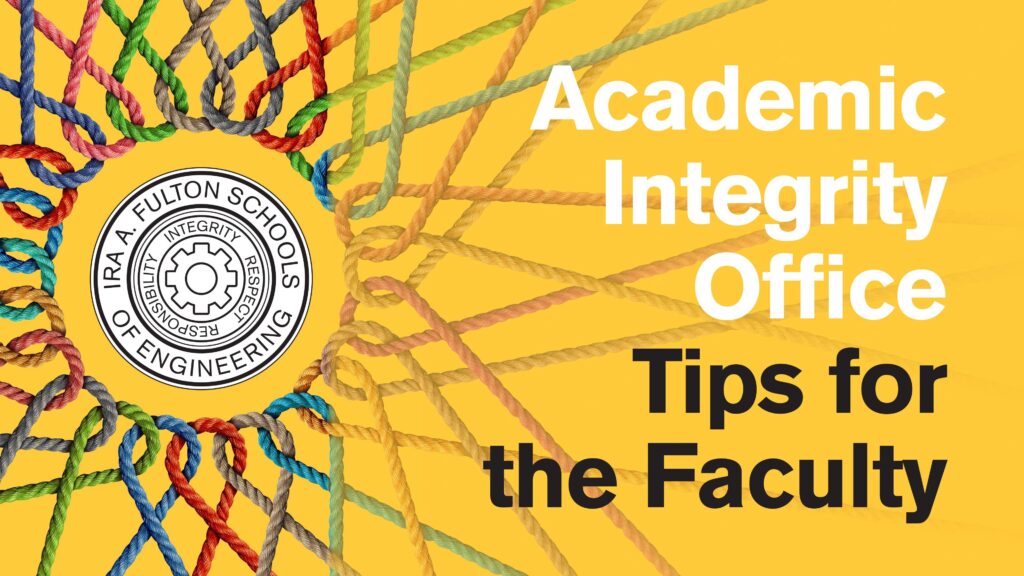
The staff in the FSE Academic Integrity Office have written resources to help guide you in circumstances where academic integrity violations frequently happen. Bonus: each one has a related meme. Check them out!
More academic integrity resources
ASU resources
How to enable Respondus LockDown browser for a Canvas exam
ASU academic integrity resources for faculty
Grading information and resources for faculty and staff
Student Accessibility and Inclusive Learning Services info for faculty and staff
External resources
Moss: A System for Detecting Software Similarity
UC San Diego: Guide to Detecting Contract Cheating in Narrative Assignments
The Chronicle of Higher Education: How to Help a Student in a Mental-Health Crisis
Downloads
Academic integrity starts with you! Use the Faculty academic integrity checklist to be sure you’ve set yourself and your students up for success. Experiencing a student with a behavioral concern? Look to ASU’s guide for assisting students with behavioral concerns. Or, display your dedication to academic integrity by using the FSE academic integrity emblem on your syllabus, or by displaying an A.I.M. High poster in your classroom or office.
